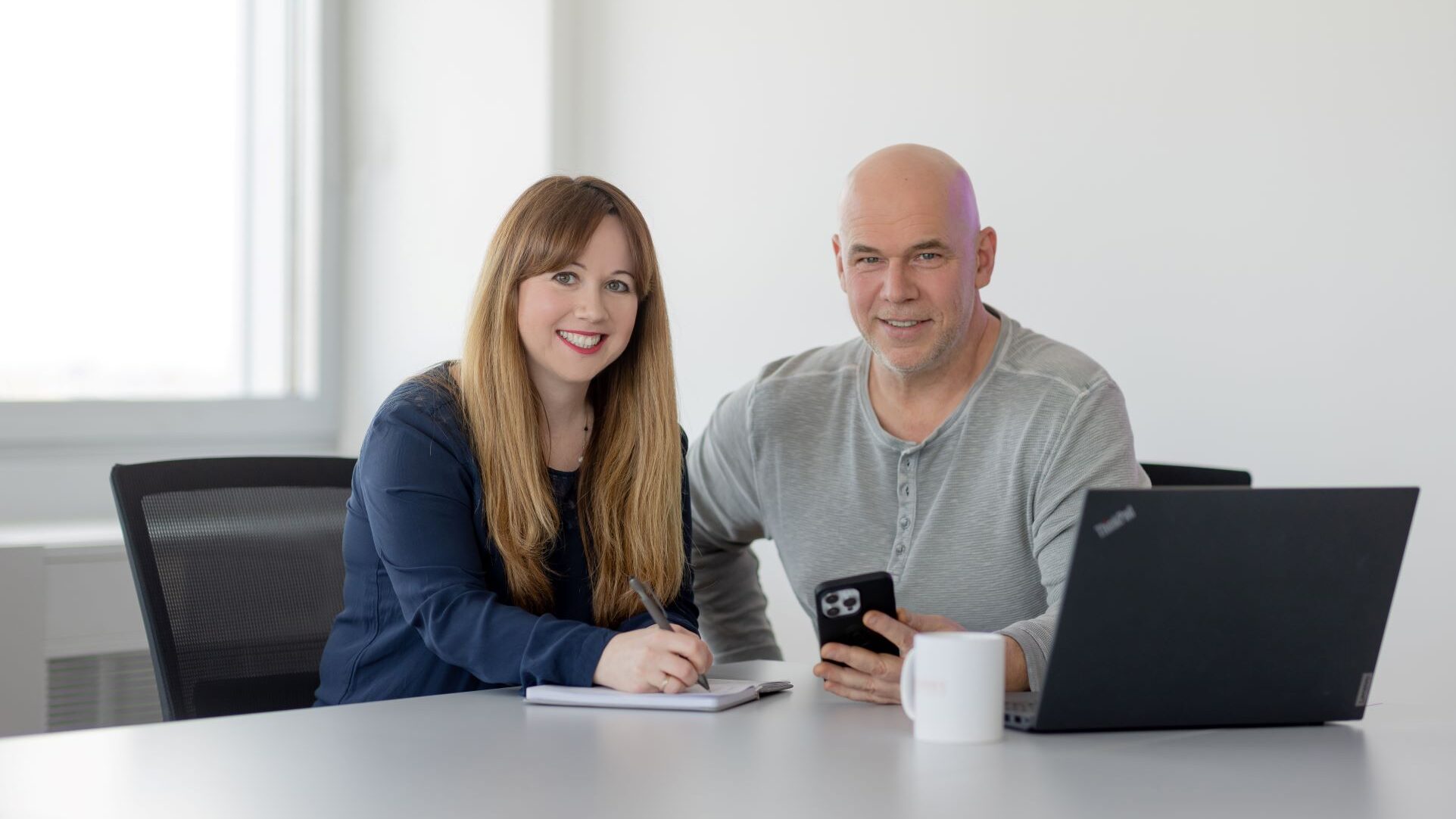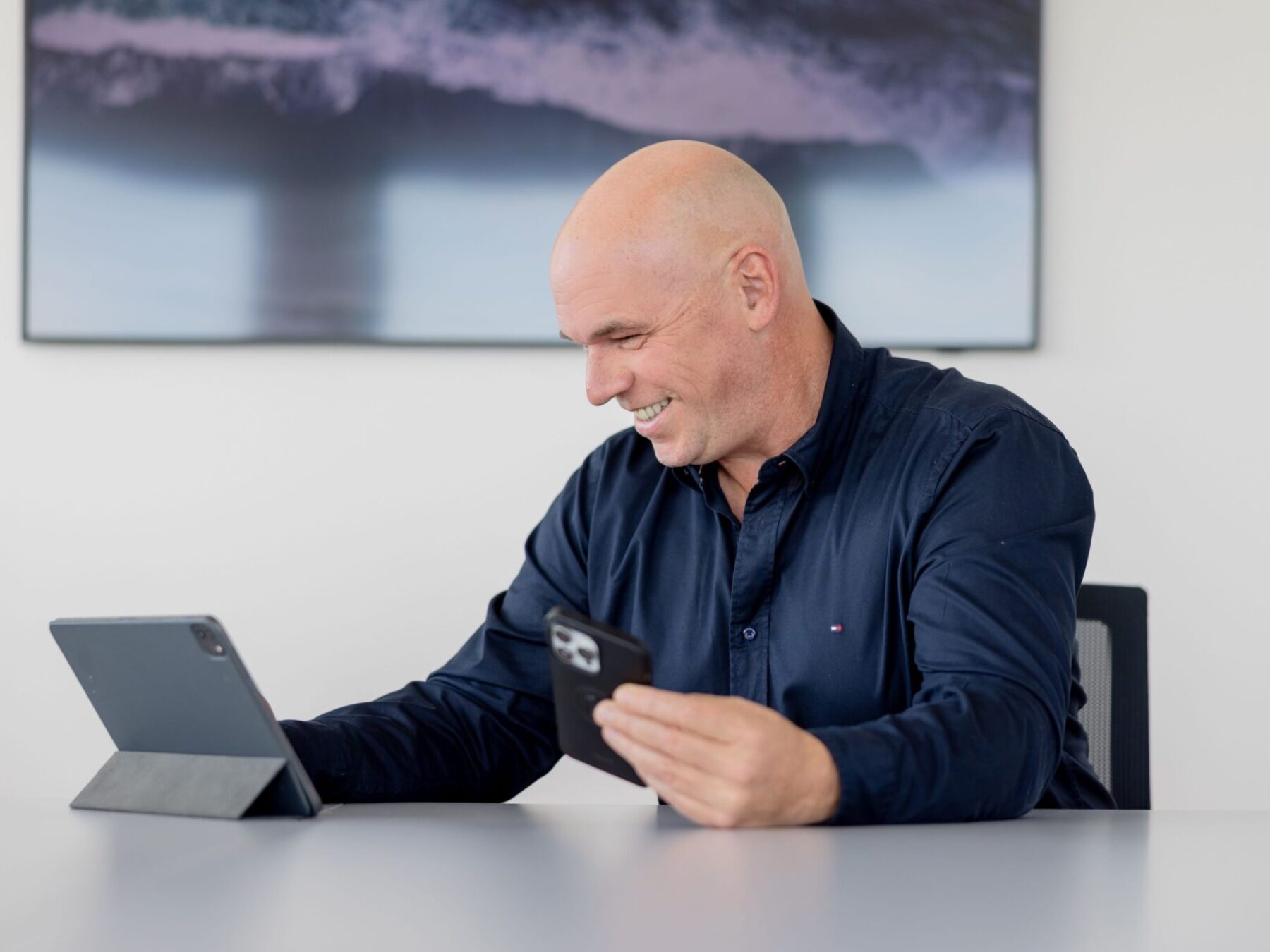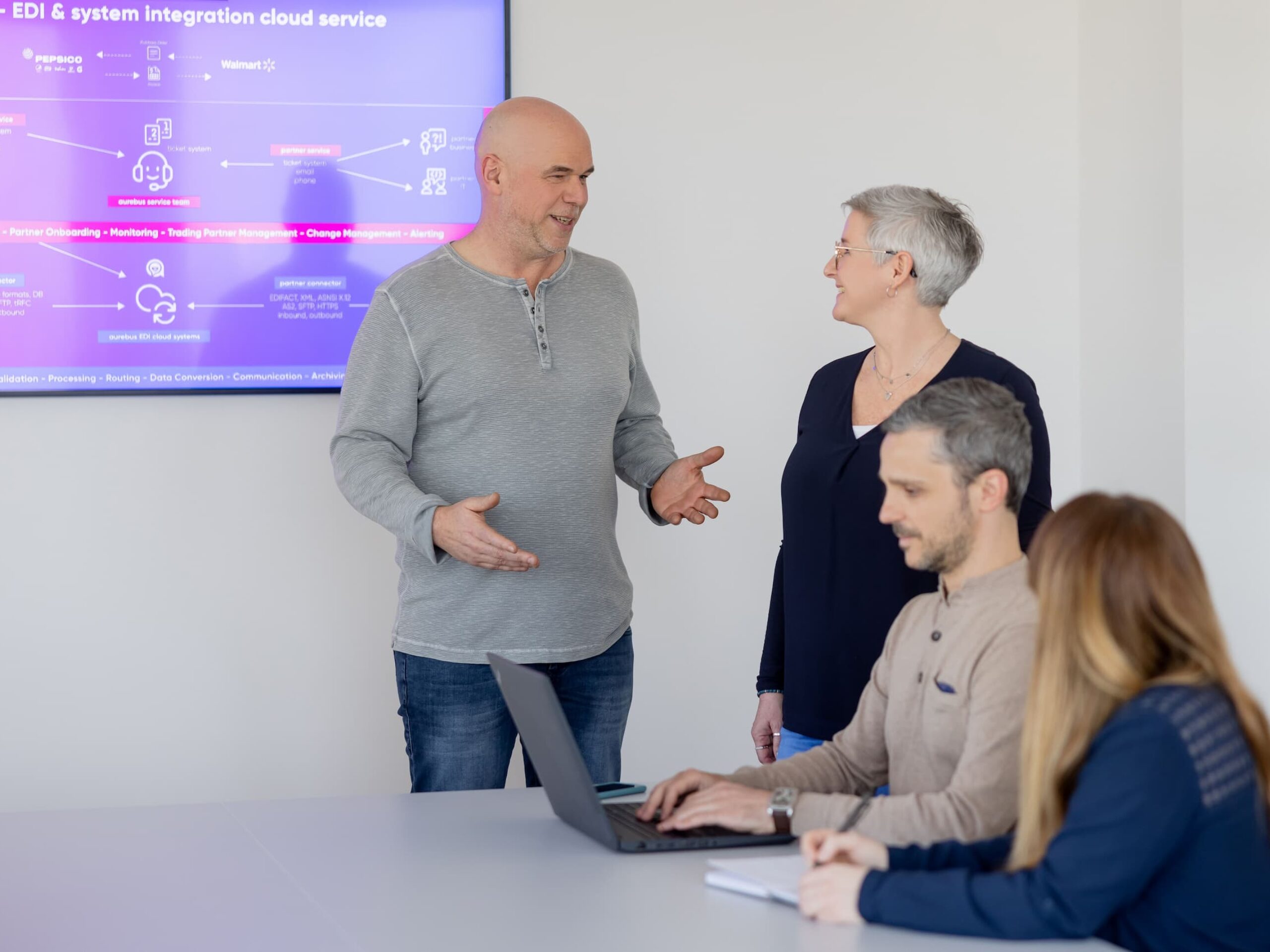These 2 skills for project managers are aurebus most important!
We love EDI. But - what do we actually expect from our project managers and what do they do on a day-to-day basis? We asked our Managing Director Klaus Dirsen.

Klaus, how does the job of a project manager for system integration projects differ from, for example, jobs in software development or EDI consulting?
The job of a project manager differs in many ways from that of a software developer or EDI consultant, even though all three roles are integral parts of a successful system integration project.
Significant differences and the core aspects that characterize the project manager can be found in the areas of role focus, leadership, interaction with stakeholders, budget responsibility and problem solving.
Software developers and EDI consultants are technical specialists with strong communication skills. They focus on developing and implementing specific technical solutions. A project manager, on the other hand, has a broader role.
He or she is responsible for planning, coordinating, and monitoring the entire project. This includes managing resources, schedules, risks, and stakeholders.
Project managers hold a leadership position. They lead teams, delegate tasks, and are accountable for achieving project goals. They must be able to bring people together, motivate, and lead them to achieve optimal results.

Project managers hold a leadership position. They lead teams, delegate tasks, and are responsible for achieving project goals. They must be able to bring people together, motivate, and lead them to achieve optimal results.
While software developers and EDI consultants primarily interact with their technical colleagues, project managers communicate with a wide range of stakeholders. This can include customers, suppliers, project team members, and other departments within the company.
Excellent communication and negotiation skills are therefore essential for this role.
Project managers are responsible for managing the project budget. They must ensure that the project is completed within the allocated cost parameters, which requires careful planning and constant monitoring.

Project managers at Aurebus have a multi-functional and highly responsible role that requires exceptional communication skills and customer focus. They play a crucial role in ensuring that our projects are completed on time, within budget, and to a high standard of quality. They serve as the link that connects our technical teams with our customers, ensuring that everyone is working towards the same goal.
Which qualities and skills are particularly important to you as a CEO?
Good question and my favorite topic: as I hinted at in the last question, regardless of the position at Aurebus, I consider two skills to be especially important: communication skills and customer focus. Both are key characteristics of our corporate culture and a vital aspect of our commitment to excellent service and collaboration.
I would like to explain why I consider both to be so important:
Communication skills allow us to effectively convey ideas and information, maintain relationships, and solve problems together.
As good communicators, we can express complex information clearly and precisely. We ensure that our messages are understandable and comprehensible.
But it’s not just about speaking, but also about listening. When we actively listen and ask clarifying questions, we show empathy and understanding for the other person’s point of view. As effective communicators, we also seek and provide constructive feedback. We are open to criticism and use it as an opportunity for improvement.

Not least, every good communication is based on respect. Respect for other opinions and perspectives, especially when they differ from our own.
When we think of customer focus, we usually think of someone who buys a product or service from us. But I would like to expand the concept of “customer” and encourage viewing it from a broader perspective.
Indeed, a “customer” can be anyone to whom we provide a service. This can include external customers who purchase our products or services, but also internal “customers” such as our colleagues, team members, supervisors, partners, or other departments we serve in our daily work.
Even in our personal lives, we can have “customers,” for example, when we help our friends, family members, or communities.
Why do I consider this perspective important?
It highlights the importance of customer focus in our daily lives. To me, customer focus means recognizing the needs of people and responding to them, serving them, and creating value.
It’s about showing empathy, listening, and striving to positively impact the experiences of the people we interact with.
I believe it is important to see a potential “customer” in everyone we meet. We can ask ourselves how we can make our “customer’s” day a little better.
Could you describe a typical day in the life of EDI Project Leads?
Every day is usually different. However, let me construct an example day:
8:00 – Start of the Day: The day begins with checking emails and project status reports to get an overview of the current state of various ongoing projects.
9:00 – Team Meeting: A short meeting with the EDI team to discuss project progress, delegate tasks, and set priorities for the day.
10:00 – Client Meeting: A virtual meeting with a client to discuss the current status of the project, answer questions, and discuss any changes to the project scope or timeline.
11:00 – Project Planning and Coordination: Work on project planning, including creating and updating schedules, assigning resources, and assessing risks.
12:00 – Lunch Break
1:00 – Collaboration with the EDI Team: Work with the EDI team on implementing the EDI solution. This can include reviewing data mappings, resolving technical issues, or coordinating testing.
2:00 – Reporting: Create project status reports and update project dashboards to monitor the project’s progress and performance.
3:00 – Client Communication: Communicate with the client via email or phone to provide updates, gather feedback, or answer questions.
4:00 – Effort Estimation and Proposal Creation: Estimate the total effort for a larger project (over 50 days). Coordinate with the EDI consulting team, create a proposal, and prepare a presentation for the client. Schedule a meeting to present the proposal to stakeholders both on the client side and internally.
5:00 – End of the Day: Final review of the day’s tasks, update project status reports, and plan tasks for the next day.

